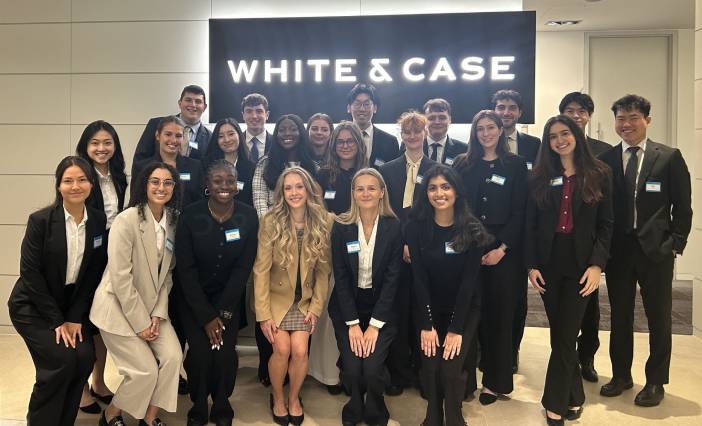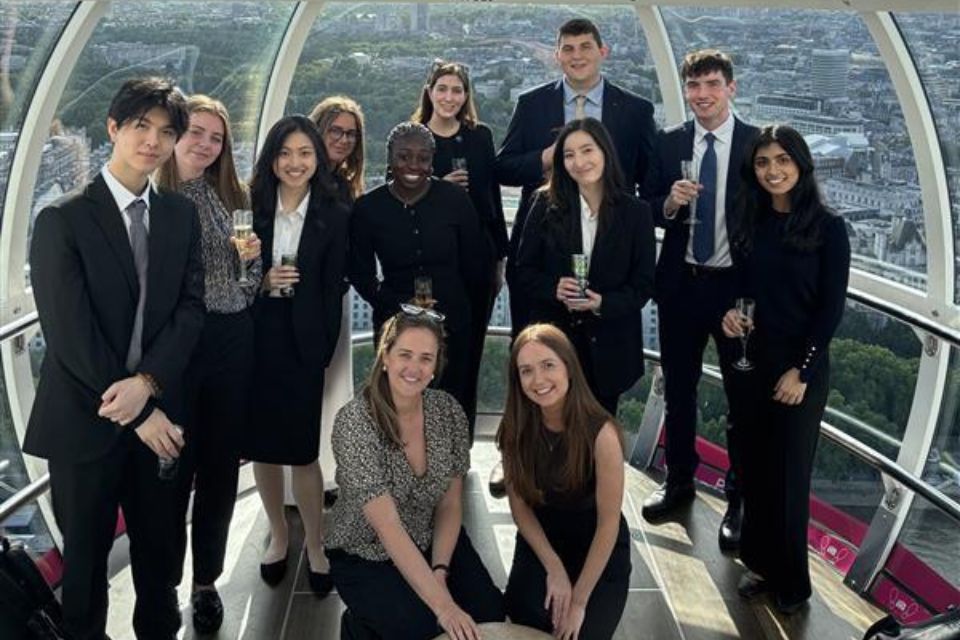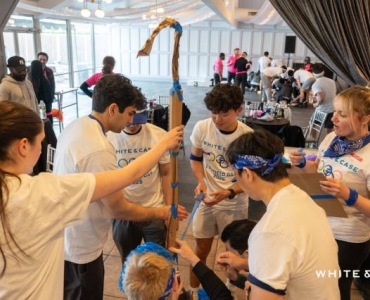
September 2025: A tale of two lawyers: Future London trainee Anita Higgs crossed paths with future Chicago associate Brittney Mensah when the latter joined the London vacation scheme as part of the US Summer Program's overseas rotation. Read about their experiences now.
Tell us about why you chose White & Case.
AH: I was drawn to White & Case's high-calibre work and global reputation in complex transactions. White & Case's dedication to innovation resonated with me. I wanted to gain an insight into the Firm's capability in handling complex international deals and to explore how its commitment to international secondments supports trainee development and builds strong cross-border working relations.
BM: The Firm's international reach and its integrated network of offices around the world stood out to me as a unique opportunity to engage in meaningful work on a global scale. The idea of working alongside colleagues from different cultures and legal systems, and contributing to matters across jurisdictions, is not only exciting but deeply motivating. As a first-generation Ghanaian-American, I've always valued the richness that comes from diverse perspectives and experiences.
We're a global firm. How have you experienced this so far?
AH: From multijurisdictional deal structuring to reviewing documents with international considerations, it was clear that collaboration across offices was the norm rather than the exception. For example, I participated in a training session that highlighted the difference between the UK and US legal processes, about litigation and regulatory compliance.
BM: Through my experiences in the Chicago, New York and London offices, I've seen a consistent emphasis on collaboration and openness to different perspectives. At the same time, each office has its own personality, shaped by local culture and practice areas.

What were the highlights of the London vacation scheme?
AH: Professionally, the highlight was engaging in one-on-one conversations with partners, associates and trainees from across the Firm. These conversations gave me valuable insights into their career journeys, day-to-day work and the collaborative culture at White & Case.
Another highlight was building friendships with fellow vacation scheme participants and enjoying the social events throughout the programme. The warmth and approachability of the Early Careers team further enhanced this, creating a welcoming and supportive environment.
BM: The professional highlight of my time in the London office was the opportunity to sit in on a mediation with the Litigation team. Observing the process in a different legal and cultural context was both insightful and inspiring. Just as meaningful was the chance to connect with the incredible people in the London office. Everyone was exceptionally welcoming, and I truly felt part of the team.
How have your experiences prepared you for life as a trainee (Anita) or associate (Brittney)?
AH: I learnt the importance of being proactive. Engaging with people across the Firm, from trainees to partners, often requires initiative to reach out and build those connections. Whether following up after a talk or arranging informal conversations to understand different practice areas, I recognised that this proactive mindset is important for a future trainee at White & Case, where showing initiative and taking ownership of one's development are key to success.
BM: Having the opportunity to work at White & Case over two summers has been an incredibly rewarding and formative experience. It gave me the chance to build meaningful relationships with attorneys, staff and fellow summer associates across multiple offices. Everyone I worked with was generous with their time, and was eager to offer guidance and mentorship. Thanks to the hands-on experience and strong connections I've built, I know I'll be starting my legal career feeling supported and challenged.
Making the move from a law classroom to a job is a big step up. From what you've seen so far, what are the experiences and skills that you can only learn on the job?
AH: Clear oral and written communication skills can only be truly developed through practical experience. In a transactional environment, deals frequently involve cross-departmental collaboration, where trainees and lawyers are often responsible for coordinating between different teams, and managing documentation with local counsel and international offices to ensure that deadlines are met and deals progress efficiently.
The fast-paced nature of transactional work means that adaptability and initiative are essential. These skills, whether responding to changing timelines, managing competing priorities or making time-sensitive decisions, are developed best from learning on the job.
BM: From what I've observed so far, the kind of work you ultimately feel comfortable and confident doing long-term is often shaped by the experiences and skills you develop on the job, not in the classroom. Each practice area has its own rhythm and sets of expectations, and those nuances are difficult to fully grasp through academic study alone. It is only through real-world exposure that you begin to understand what type of work truly engages you, aligns with your strength and suits your working style.





